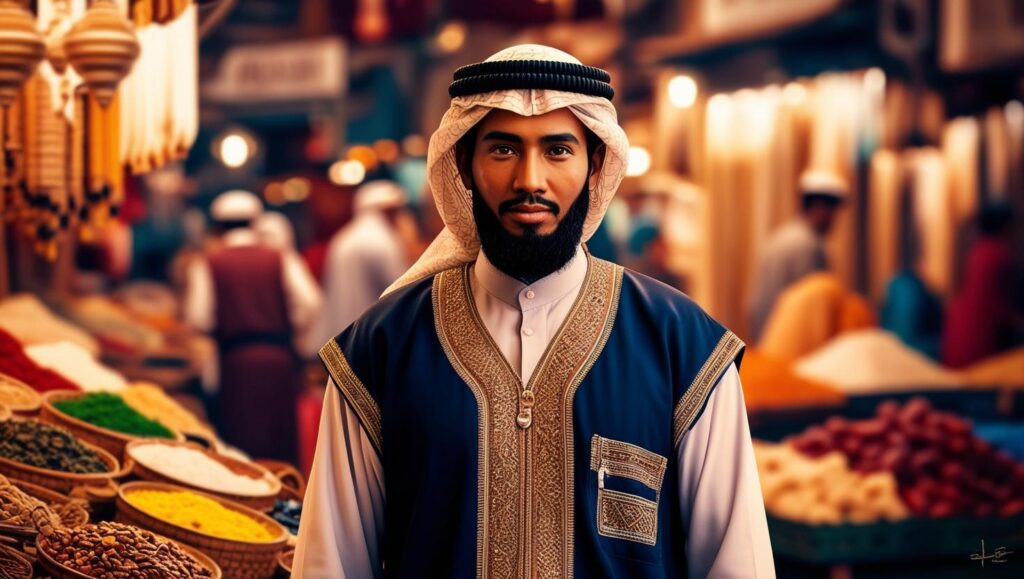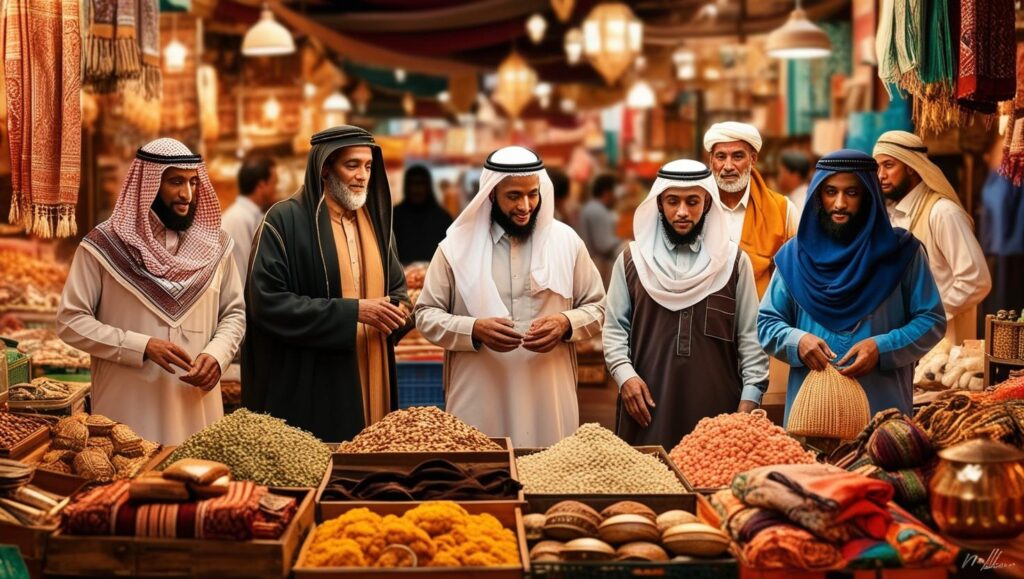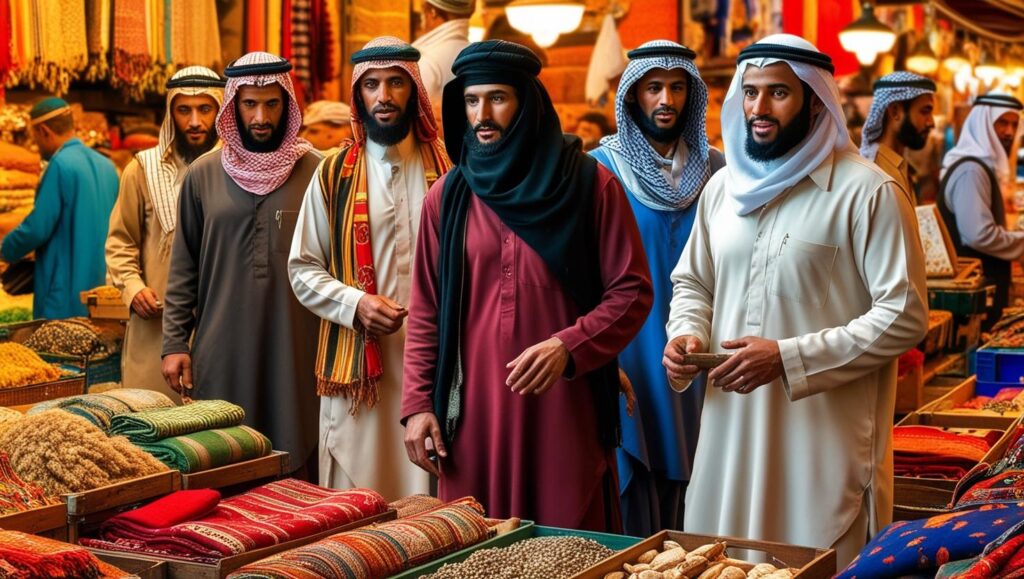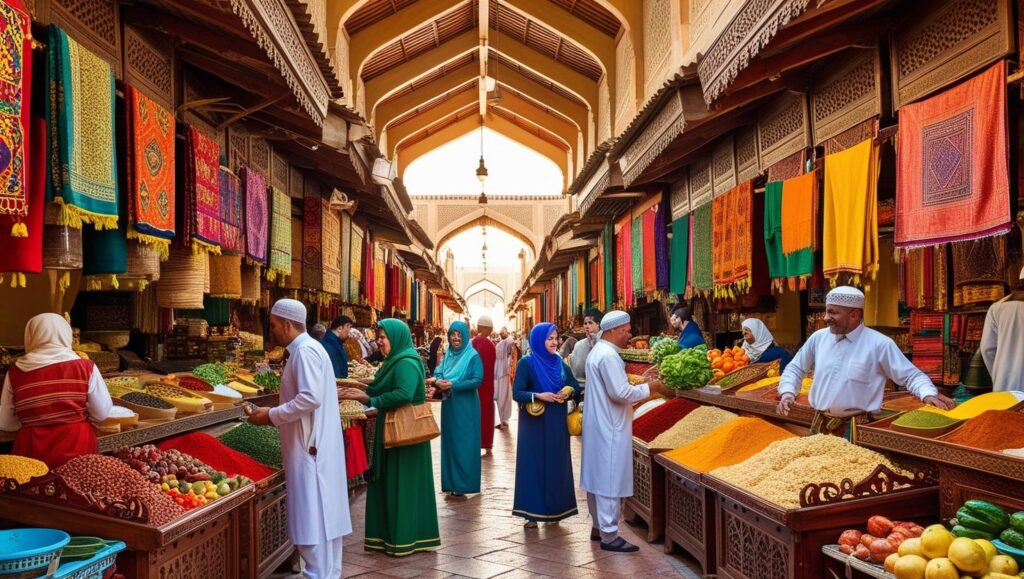Hazrath Umar bin Al Khattab Trade & Commerce Towers, Bangalore
Tannery Road, the hub of old Bengaluru is filled with shopping centers, small shops, and will soon be Connected with Namma Metro on the Pink Line Corridor providing seamless connectivity to all parts of Bangalore. Among the hustle-and-bustle of over Thousands of daily travelers into the area, one building stands out for its ‘Ottoman façade and eye-catching design Al Muqaddas Hazrath Umar bin Al Khattab RZ Trade and Commerce Towers

Named after the The second caliph of Islam Hazrath Umar bin Al Khattab An Early Entrepreneur who Travelled from the Land of Makkah al Mukkaramah to the Far east Trade Destinations of Syria & Iraq and always had the opinion that the man can obtain the Respect and Leadership position only when we achieve Supremacy in Business
The Hazrath Umar bin Al Khattab Trade and Commerce Towers promises to deliver one-of-a-kind shopping experiences by combining the finest facets of an international-standard mall. It’s the most ideal place to shop for visitors and establish hassle-free & profit-calling office/business spaces for business owners. In Addition, our Trade center provides a unique retail & office space destination for lawyers, CA’s, dealers, distributors, consultants, and production companies alike.
The Hazrath Umar bin Al Khattab Trade and Commerce Towers houses Retail shops, Exclusive offices, Travel & Trade Help Desk, Exclusive Air-Conditioned meeting Rooms, Large Hall to conduct B2B Seminars, B2C Shows, Exclusive Launchpad to Launch new companies/ Services / Products Space for conducting Training Sessions for New Entrepreneurs, Organizing Business Networking sessions, A permanent Mushaira and Shayari Sessions Every Weekend to pull the Millennials Crowd
All success stories start with a vision, and successful visions are based on strong pillars.
The first pillar of our vision is our status as the heart of the Muslim Locality. We recognize that Allah the Almighty has bestowed on our lands a gift to turn towards him in Prayer at all Times
The second pillar of our vision is our determination to become a global investment powerhouse. Our Location – Tannery Road holds strong investment capabilities, which we will harness to stimulate our economy and diversify our revenues.
The third pillar is transforming our unique strategic location into a global hub connecting the Well-Developed localities of Frazer Town and Benson Town and we are well connected by all the means of Public and Private Transportation including BMTC and Metro along with all the Private app Hailing Taxi Transportation
Tannery Road
Tannery Road, not far from Frazer Town, part of Bangalore’s erstwhile Cantonment is an enviable place to stay. The area is an eminently accessible and much sought after location
Tannery Road is rich in all Aspects, but we have not got our Due Recognition, We Have the Right to lead a Good Quality and Aspiring lifestyle on par with the Residents of our Neighborhoods of Frazer Town and Benson Town and our real wealth lies in the ambition of our people and the potential of our younger generation. They are our Locality’s pride and the architects of our future. Our people will amaze the world again. We are confident about the Tannery Roads’s future. With all the blessings Allah has bestowed on us we cannot help but be optimistic about the decades ahead. We ponder what lies over the horizon rather than worrying about what could be lost.

Inside the Trade Towers
Ground floor
1) Ladies dress material
2) Ethnic wear
3) Medical Store
4) Perfume Store
5) Mobile showroom
6) Men’s dress material
7) Footwear
8) Book Store
9) Grocery Store
First floor
1) Beauty parlour
2) Mehndi – makeup
3) Designer boutique
4) Burkha centre
5) Imitation jewellery
6) Bangle store
7) Fashion accessories
8) Fashion design
9) Ladies tailor
Second floor
1) General doctor
2) Dentist
3) Child care clinic
4) Skin clinic
5) Eye clinic
6) Unani clinic
7) Acupuncture – hijama
8) Nutritionist
9) Gynecologist
Third floor
1) Advocate
2) Advocate
3) Tax consultant
4) Tax consultant
5) Financial consultant
6) Stockbroker
7) HR consultant
8) IT and related services
9) Event management
Fourth floor
1) Real estate consultant
2) Real estate consultant
3) Real estate builder
4) Civil Contractor
5) Electrical contractor
6) Plumbing contractor
7) Housekeeping agency
8) Security Agency
9) Foreign education consultant
5th floor
1) Hajj and Umrah
2) Hajj and Umrah
3) Hajj and Umrah
4)Tour operator
5) Currency exchange
6) Tour operator
7) Visa consultant
8) Educational consultant
9) Educational consultant
6th floor
1) 1 hour delivery Tailor
2) Interior designer
3) Interior designer
4) Job placements
5) Job placements -foreign
6) Lab diagnostic
7) Tailors
8) Tailors
9) Salon
7th floor
1) Food Corner
2) Toilets
3) Meeting area

Our Intentions:
We intend to provide better opportunities for partnerships with the Landowners who own Prime / Non-Prime, Residential / Commercial Land in this Locality, our leading investment capabilities, and our strategic Leadership position in terms of Infrastructure Buildings.
We will improve the Living standards of the Residents and business environment, so that our economy grows and flourishes, driving healthier employment opportunities for citizens and long-term prosperity for all.
This promise is built on cooperation and on mutual responsibility. This is our “Tannery Roads’s Al- Muqaddas Vision for 2030.” We will begin immediately delivering the overarching plans and programs we have set out. Together, with the help of Allah, we can strengthen the Tannery Roads’s position as a great locality in which we should all feel an immense pride.

Hazrath Umar bin Al Khattab (RZ)
The second caliph of Islam, ‘Umar ibn al-Khattâb born in 581 AD in Mecca, and belonged to a noble family of the Quraish. He was a renowned businessman and used to lead trade delegations to Syria and Iraq. ‘Umar ibn al-Khattâb faced more struggles than any other Muslim leader in the early onset of Islam. His life began in a time of ignorance and ended during the Golden Age of Islam. Under his leadership, the Muslim world was witnessing some of its most notable conquests in the history of Islam. The strength and resilience of Islam’s leaders were being tested, and ‘Umar ibn al-Khattâb’s true commitment to Allah shone to reveal an Islamic spirit unlike that found in any other Muslim leader. The standards by which he lived can teach us a lot about determination, hardship, and success.

When exercised with faith and steadfastness, history bends to the will of man. Umar Al Farooq was such a man who left a legacy that subsequent generations have emulated. He was a great conqueror, a wise administrator, a just ruler, a monumental builder, and a man of piety who loved God with the same intensity that other conquerors of his caliber have loved gold and wealth. Umar shaped the historical edifice of Islam, and whatever Islam became or did not become in subsequent centuries is primarily due to his work. Indeed, Umar was the architect of Islamic civilization.
Human destiny is to realize its own sublime nature within the matrix of human affairs. When free will is abused, humans are reduced to the most wretched of creatures. Umar understood this better than anyone, and few since the Prophet carried this trust with as much wisdom, humility, determination, sensitivity, persistence, and courage. By any yardstick, Umar was one of history’s greatest figures.
‘Umar ibn al-Khattâb was a wrestler, a businessman and above all one of the leaders of the Quraish, and then to his life after his conversion into Islam being one of the closest companions of Muhammad PBUH and an immensely devoted believer, a brave inspiration for all the contemporary Muslims and a bold warrior in all the contemporary Islamic battles. He was a truly great Khalifah whose period of Khilafat was undoubtedly a golden period in the history of Islam. He was one of ten blessed ones to whom the Holy Prophet had given the glad tidings that they had been rewarded the Paradise
A strong ruler, stern toward offenders, and himself ascetic to the point of harshness, ʿUmar was universally respected for his justice and authority. His role in decisively shaping the early Islamic community is widely acknowledged. his legacy as caliph shows the biographical stories of improvements and complexities of his own caliphate till his death

Hazrath Umar bin Al Khattab (RZ) Views on Business / Achieving Leadership Position via Business & Solutions to the Growing Economy
Aspiration and Inspiration
Seeking The Bounty
Nothing annoyed ‘Umar (ra) more than the person who refused to work while making deceitful claim that he was placing his complete trust in Allah سبحانه وتعالى, believing with certainty that Allah would provide him with sustenance. For ‘Umar (ra) knew that a person who truly trusts in Allah سبحانه وتعالى works hard in order to earn a lawful living. Or as ‘Umar (ra) put it, “Let none among you sit down, abstain from seeking out lawful sustenance, and then say, ‘O Allah, provide me with sustenance.’ [How can he say this when] he knows fully well that the sky does not send down rain in the form of gold and silver. Verily, Allah only provides for people through other people (i.e. through the exchange of goods and services).” ‘Umar (ra) then proceeded to recite the saying of Allah:
Then when the (Jumu’ah) Salaat (prayer) is finished, you may disperse through the land and seek the Bounty of Allah (by working etc.), and remember Allah much, that you may be successful. (Quran: 62:10).**
Unemployment Or Entrepreneurship
‘Umar (ra) understood the importance of business. It was the profession of his people, and it was what kept them afloat financially. In reference to that fact, ‘Umar (ra) once said to his people, “Had it not been for these business transactions, you all would have become dependent on other people.” ‘Umar further appreciated the fact that any meager job was better than no job at all. It is related that he (ra) said, “A means of earning a living that involves a degree of humiliation is better than asking people [for handouts].
According to another narration, ‘Umar (ra) once said, “O group of poor people, raise your heads [with dignity] and do business, for the way to doing business is open to you. And do not become dependent on other people.”
If ‘Umar (ra) saw a young man that he was impressed with, he (ra) would ask, “Does he have a profession?” And if the answer was, “No”, ‘Umar (ra) would say, “I now have a lower opinion of him.” The following saying of ‘Umar (ra) shows just how strongly he felt about the importance of earning a lawful living.**
Lesson:
A Muslim should not regard any business or job as small or unworthy. Because no halal job is bad or small and is in fact better than depending on others. Allah سبحانه وتعالى has created the land wide and vast. Somewhere or another, there must be an opportunity waiting because Allah سبحانه وتعالى created every creature with its provision. The life of a Muslim is the life of dignity. As a Muslim individual and nation, we must strive to be solvent. And business makes people financially independent.
Solving The Need of Growing Economy
‘Umar (ra) was tuned into the fact that times were changing. For it had not been long before when most people in Makkah and Madeenah were either farmers or businessmen. But because of changing economic circumstances, and because of an ever-increasing population, ‘Umar (ra) understood that it was no longer viable for people to limit themselves to those two professions. He (ra) once said, “Learn a trade, for the time draws near when some of you will need to know a trade [in order to earn a living].”**
Lessons:
Search for a business opportunity in a growing economy. A growing economy always has a growing need. So, Muslim entrepreneurs must always look for new ways of serving the needs of the society through innovative products and services, extending the business to a new market or supporting the new entrepreneurs to grow through knowledge and capital.
Civilization and economy are ever changing. A skill or business might be doing well for a certain period, but entrepreneurs and business community must predict the need of the future and invest in the development of human talent and infrastructure to face that challenge. So learn a new skill, a new way of doing business, a technology to face the future.
Economic Leadership And Competition
When ‘Umar became afraid that His people would abandon business altogether:
One day during his caliphate, ‘Umar (ra) entered the marketplace and was taken aback when he looked around and saw that most of the people who were doing business were foreigners who in the past had worked as farmers. Where, ‘Umar asked himself, were the native inhabitants of Makkah and Madinah? Why were they not doing business? Although ‘Umar (ra) likely knew the answers to these questions, the situation nonetheless bothered him.
When the people gathered together a short while later, ‘Umar (ra) scolded/criticized them for abandoning the marketplace. In their own defense, they said, “Verily, by granting us victory (victory in war and consequently great quantities of war booty), Allah سبحانه وتعالى has made us rich, so that we no longer need [to conduct business in] the marketplace.” ‘Umar (ra) said, “By Allah, if you continue in this manner, you will become dependent on their men [(i.e., on foreign men) for help], and your women will become dependent on their women.” ‘Umar (ra) felt that, even though his people became rich, they were committing a grave error by abandoning business. Sooner or later, he felt, their money would run out, and they would have to depend on others for handouts. It was for this reason that ‘Umar (ra) pleaded with his people to continue to work hard and not give up doing business.
It was narrated from Muhammad ibn Sireen that his father said: ‘I once attended Maghrib with ‘Umar ibn al-Khattaab, and afterwards he came to me and I had a small pile of clothes. He asked, ‘What is this you have?’ I said, ‘Some clothes. I come to this marketplace, and I buy and sell.’ He said, ‘O people of Quraysh, do not let him and others like him beat you in business, for [supremacy in] business is one-third of achieving leadership over others.'” ‘Umar was of course speaking in a playful manner, hoping to foster an atmosphere of friendly competition between the businessmen of various tribes.**
Lessons:
If the Ummah wants to achieve leadership position in the world, emphasizing on entrepreneurship and business development would be considered one third of that achievement.
Take the leadership of the economy or market share before foreign people or companies take the leadership of the market.
Muslims should always welcome new businesses without creating any barrier.
In business, people should compete with one another maintaining a light and friendly environment.
Risk Mitigation
On other occasions, ‘Umar (ra) would offer people more specific advice about business. For instance, Al-Hasan (ra) related that ‘Umar (ra) once said, “Whoever does business in something three times without gaining any profit in the process, should move on to something else.”
According to another narration, ‘Umar (ra) once said, “When one of you buys a camel, let him buy one that is large and fat; for, if he is not able to benefit from it himself, he will at least be able to sell it.”**
Lesson:
Entrepreneurs need to be creative and smart in developing a business. They need to focus on developing a business that creates value for both, business organization and customers. If a business venture fails to generate enough revenue to run its operation further, at least it should be able to benefit from its value that it created through the process. A brand name, a business process, a product, an innovative service SOP, a design, or a customer base etc. could be considered as business value.
Entrepreneurs should not give-up in first attempt. Rather, they should evaluate the product, market need and the timing, take lessons, create new strategy and implement it.
Given a reasonable time, if a venture fails to generate enough revenue to run its operation, entrepreneurs should avoid taking further risk by investing more time and capital.
Communication And Manner
In a sermon that is replete with wisdom, ‘Umar (ra) said, “Whoever keeps a secret to himself maintains control of his situation. If one acts in a suspicious manner, then one should certainly not blame those who think ill of him. If your [Muslim] brother has said something, do not think ill of his words if you can find a good interpretation for them (i.e. give him the benefit of the doubt). Think the best of your brother until he does something that leaves you no choice but to think otherwise about him. Do not swear by Allah too much; otherwise, Allah [might] humiliate you. The best way to repay someone who, in his treatment of you, has disobeyed Allah, is for you to obey Allah in your treatment of him. And seek out brothers who are true: Gain their friendship, for they are an adornment [to your company] in times of comfort, and a source of help in times of hardship.”**
Lessons:
Certain strategies of a business plan need to have confidentiality for any business to aspire. And it is not allowed for a Muslim to spy on a strategy, product or marketing plan of other businesses.
Being in a community, a Muslim must avoid odd or wrong behavior, no matter what circumstance or test he/she is going through. A calamity or any situation cannot be the justification of any wrong manner. And people have all the right to hold one responsible for his unjust behavior.
A Muslim must give the benefit of doubt to other fellow Muslims instead of being judgmental. A person is innocent until proven guilty.
A Muslim must be careful about swearing by Allah because if he is wrong, it is a great disrespect towards the honor of the Almighty سبحانه وتعالى. It can be practiced in case of very important issues, or as a testimony. Swearing habitually in our everyday life puts us at the risk of committing a major sin of swearing falsely.
If someone wrongs you through disobedience of Allah, you should not pay him back by another disobedience. The best way is to resolve the issue in a way that pleases Allah سبحانه وتعالى.
Muslims should always look for true brotherhood and friendship. One needs to be the companion of his brother in good times and a support in bad times.
Leadership Lessons from Umar Ibn al-Khattab: Inspiring Entrepreneurs, Leaders, and Politicians to Build a Just and Visionary Future
In the quest for effective leadership, looking to the past can provide us with invaluable insights and inspiration. Umar Ibn al-Khattab, the second caliph of Islam, offers valuable lessons that transcend time and can inspire entrepreneurs, leaders, and politicians alike. By exploring Umar’s leadership qualities and strategies, we can gain insights to navigate today’s complex business and political landscapes with wisdom and authenticity.
Authenticity in Leadership:
Umar Ibn al-Khattab was known for his authenticity and sincerity as a leader. He embodied the principles he advocated and earned the trust and respect of his followers. Entrepreneurs, leaders, and politicians can learn from Umar’s example by staying true to their values, leading with integrity, and cultivating genuine relationships built on trust.
Inclusivity and Empowerment:
Umar’s leadership was characterized by inclusivity and empowerment. He consulted with his advisors, sought diverse perspectives, and empowered individuals to contribute to decision-making processes. Entrepreneurs and leaders can foster an inclusive environment by encouraging diverse voices, valuing collaboration, and empowering their teams to unleash their full potential.
Justice and Fairness:
Umar’s commitment to justice and fairness was unparalleled. He implemented a robust legal system that treated all citizens fairly, regardless of their background or faith. Modern leaders can draw inspiration from Umar’s dedication to fairness and inclusivity, creating work environments that value diversity and promote equal opportunities. By fostering a culture of justice, entrepreneurs can empower their teams and build organizations that stand the test of time.
Vision and Strategic Thinking:
Umar had a clear vision for the Islamic Empire’s expansion and transformation. He strategically planned and executed military campaigns, ensuring the stability and growth of the state. Entrepreneurs and leaders can apply this lesson by setting a compelling vision for their organizations and formulating well-thought-out strategies to achieve their goals.
Strategic Decision-Making:
Umar was renowned for his strategic decision-making abilities. He sought input from advisors and encouraged open dialogue, demonstrating a willingness to consider diverse perspectives. Modern leaders can adopt this approach, embracing feedback and constructive criticism to drive innovation and growth. Umar’s example reminds us that wise decisions are often made by gathering multiple viewpoints and weighing them carefully before taking action.
Umar Ibn al-Khattab’s wisdom continues to resonate today the quote that encapsulate his leadership philosophy.
“Account yourselves before you are held accountable, and weigh your actions before they are weighed for you”
Umar highlights the significance of personal accountability. Leaders who hold themselves accountable set the tone for their organizations, fostering a culture of responsibility and integrity.
The quote is still relevant today. We live in a world where people are often quick to judge others, but we should also be quick to judge ourselves. We should all strive to live our lives in a way that is pleasing to God.
By holding ourselves accountable, we can live our lives in a way that is pleasing to God. We can also set a good example for others and help them to live righteous lives as well.
Impact on Today’s World:
Umar Ibn al-Khattab’s leadership legacy continues to impact the world today. His emphasis on justice, inclusivity, and strategic decision-making provides valuable lessons for entrepreneurs, leaders, and politicians. By adopting Umar’s principles and incorporating them into their leadership approach, can create organizations that prioritize fairness, equality, and long-term success.
Conclusion:
Umar Ibn al-Khattab’s leadership qualities and principles hold timeless relevance for modern entrepreneurs, leaders and politicians. His visionary approach, commitment to justice, and strategic decision-making continue to inspire and guide leaders around the world. By drawing from Umar’s wisdom, entrepreneurs can create organizations that not only achieve financial success but also make a positive impact on society. Umar’s leadership serves as a powerful reminder that authentic and principled leadership can shape a better future for all.

Like our Facebook page https://www.facebook.com/propheadlines/
For Latest Real Estate Investment News Log on to https://propheadlines.com/
For Site Visit and other details of the Project Hazrath Umar bin Al Khattab Trade & Commerce Towers, Bangalore call + 91-9845017139 / +91-9845044734 / + 91-9845064533 / +91 – 93531 19587
Project Hazrath Umar bin Al Khattab Trade & Commerce Towers, Bangalore is Marketed by Prop headlines Sovereign Real Estate Investors Funds – Bangalore




